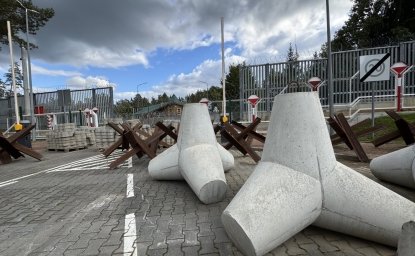This is a partial transcript of "The Situation Room" from January 27, 2011. Read the full transcript on CNN.com.
BLITZER: All right, let's go dig deeper a little bit with Tom Foreman, along with journalist and author and scholar Robin Wright. She's reported from 140 countries. Her most recent book is "Dreams and Shadows: The Future of the Middle East." All right, you heard what the president had to say. The future of the Middle East seems to be changing very, very quickly, dramatically. What do you think?
ROBIN WRIGHT, SENIOR FELLOW, U.S. INSTITUTE OF PEACE: Oh, this is an extraordinary moment in the Middle East.
And what is so interesting is that the common denominator in places like Tunisia, Egypt and Yemen is the fact that you have popular street protests that have no ideology, that have no genuine leadership. They're emerging in some ways because of common denominators, corruption, government mismanagement, opposition to the regime leadership specifically.
So you have Tunisia starting off the Jasmine Revolution through popular social media, access to ways of communicating beyond the state. Then you find Egypt and this very dynamic movement, which is important because, of the 22 Arab countries, one-quarter of the Arab world's population is in Egypt.
BLITZER: Eighty million people. It's the largest of all of the Arab countries.
And, Tom, I want you to be part of this conversation as well, because as we look at Cairo, is it possible that President Mubarak, who has been in power for 30 years, Robin, that he is on his way out now? Because we don't know what would follow.
WRIGHT: Well, I think that's going a little bit too far. We need to take one day at a time.
Egypt has twice used its army, in 1977 after food riots and in 1986, to intervene and try to restore calm. Egypt has the means to do that in a way that Yemen and Tunisia don't.
TOM FOREMAN, CNN CORRESPONDENT: Let me ask you a question about that, though.
We talked about the shutting down of the Internet over there. Ben Wedeman talked about it and how this began with Facebook, Twitter, that sort of thing. Earlier today, "The Guardian" was reporting that now, just as Ben said, door-to-door campaign, leaflets are being passed out. And one of the emphases of these leaflets is to co-opt the troops, to basically say, reach out to the troops who come to suppress this and say, you are our families. Join us in this revolt.
When you look at a place like this, and this really is right now sort of the ground Zero of this, is that possible?
WRIGHT: I know that square very well. And it's always a place where demonstrators gather. And when you look at the numbers, there are 340,000 in the army, 300,000 in the Central Security Forces. And that's beyond the police.
They could use those forces. But this is a country of 80 million people. And so the big question is to what degree do you maybe not challenge the leadership of the army, but you challenge the rank and file, those who do have brothers, cousins, sisters who are part of the popular protest?
BLITZER: Let's go through the region right now, because Tunisia, we saw what happened very quickly. Lebanon, we see dramatic changes. Egypt could be on the verge of a revolution right now.
And Yemen, this is small country, but it's strategically located. It has got a big al Qaeda presence, growing right now. And the leader there, he could be removed as well. Ramifications for the U.S. would be what?
WRIGHT: Well, I think again we're going too far, too fast. Yemen is a country that is important for geostrategic interests because it is the home of al Qaeda of the Arabian Peninsula.
And the thing that the U.S. has always faced in the region is, what is more important to us? Is it our national security interests, particularly in the aftermath of 9/11, our campaign against extremists, or is it the values of freedom of speech and so forth?
FOREMAN: Well, with 23 million people here, isn't this also the one that of the ones we're talking about right now is also generally seems the most unstable?
WRIGHT: Yes. Absolutely.
You have a rebellion in the north, a secession in the south. And you have al Qaeda. So there are three components already creating instability in Yemen.
BLITZER: Because if al Qaeda were to take over, and their supporters in Yemen, it would be a huge disaster.
WRIGHT: I just don't think we're that far yet. Al Qaeda is -- uses Yemen as a base in the same way it did with Afghanistan.
And, yes, it is also opposed to the leadership of President Saleh. But that's -- you know, I don't think al Qaeda is going to step in and fill the vacuum. One of the things that is so much in doubt right now is because these groups are so amorphous, they are leaderless, that we don't know who would step in.
BLITZER: Is this likely to spread, not only to Yemen, but to other friendly countries like Jordan, for example? Is it likely to go all over the region? Because these are changes that are moving boom, boom, boom.
WRIGHT: Much faster than anybody anticipated. And, yes, you have seen a real nervousness.
You saw in a place like Jordan some protests as well. In little Kuwait at the top of the Arabian Peninsula, the government decided to literally buy out its citizens by offering over $3,000 literally to every citizen. There's the Arab League Summit in Cairo just this month. They focused heavily on the economic conditions and the turmoil they saw.
FOREMAN: Let me ask you a question about that, because there are big differences. Egypt, where we're seeing these protests, has about 10 percent unemployment. If you look at Yemen down here, they're like at 23 percent, 25 percent unemployment. And up here in Jordan I think it's around 12 percent. But these are very different places. What is the central uniting theme? Why are they all catching fire from each other, when they really are different places?
WRIGHT: I think one of the most important things we don't look at is the fact that the literacy has gone up, that you have an educated class. In Egypt, for example, the government promises a job to every college graduate.
But the time between graduating from college and getting a job with the government, which may not necessarily be a good job, is three years. And so there's a literate body. There's a means of circumventing state-controlled media through Twitter, the Internet and so forth. So you have all these things coming in at a time of real dissatisfaction, of globalization. And people see how others are living.
FOREMAN: We will talk to you more, Robin Wright, as we this goes on.
Related Links



